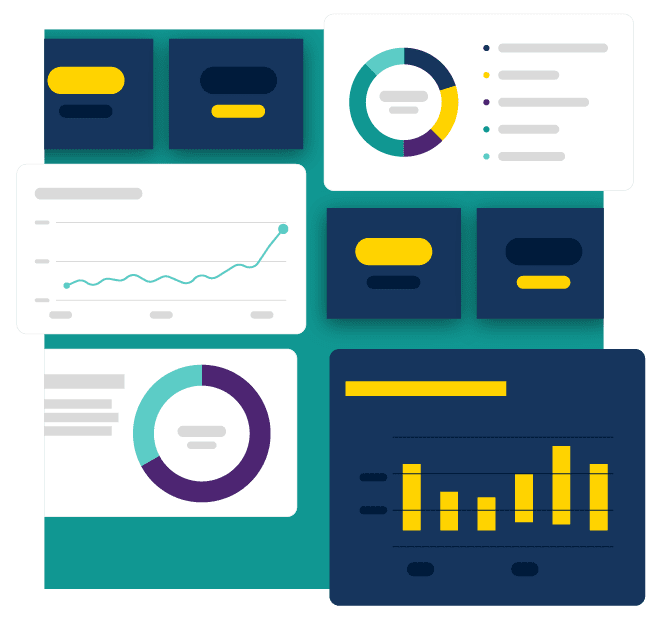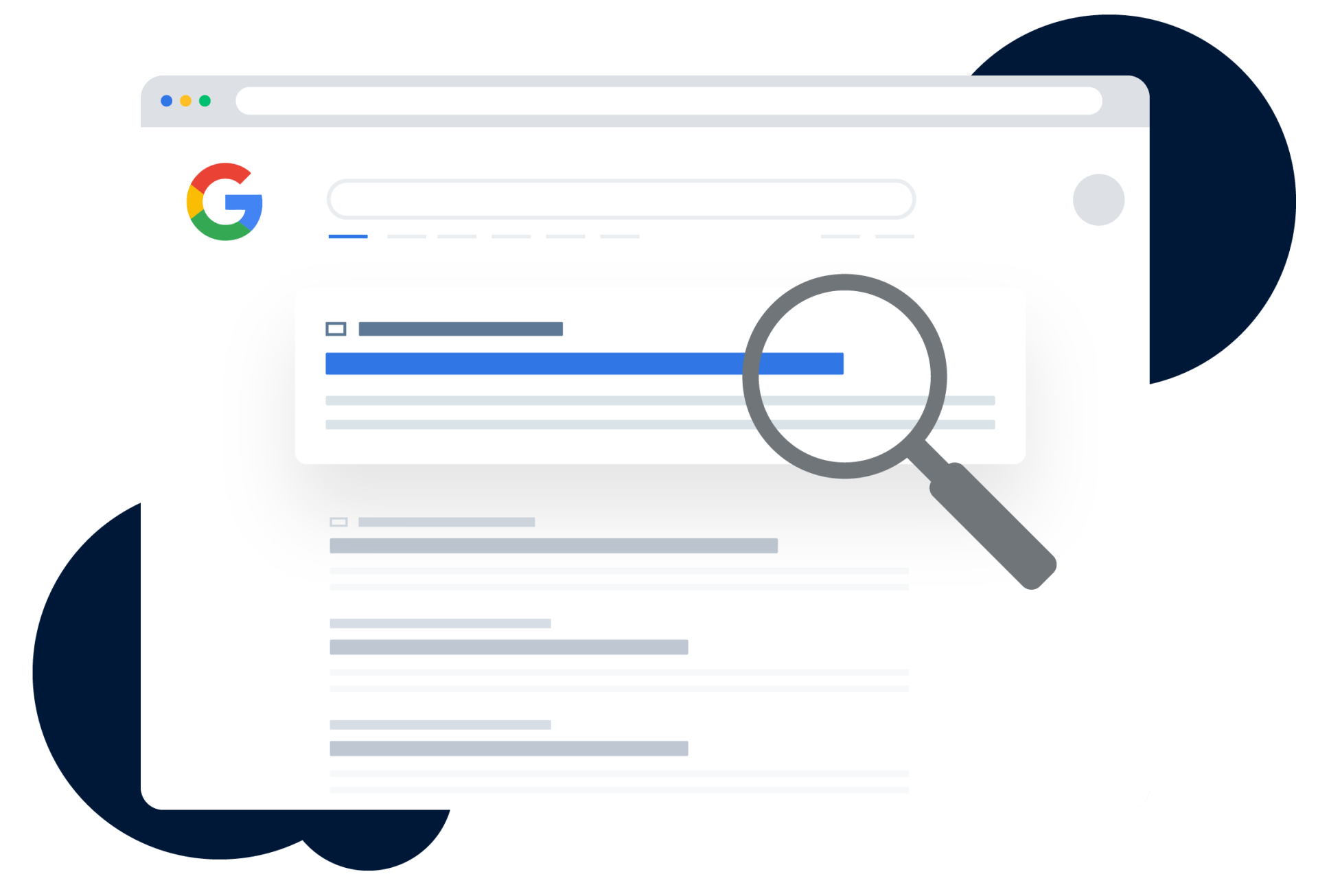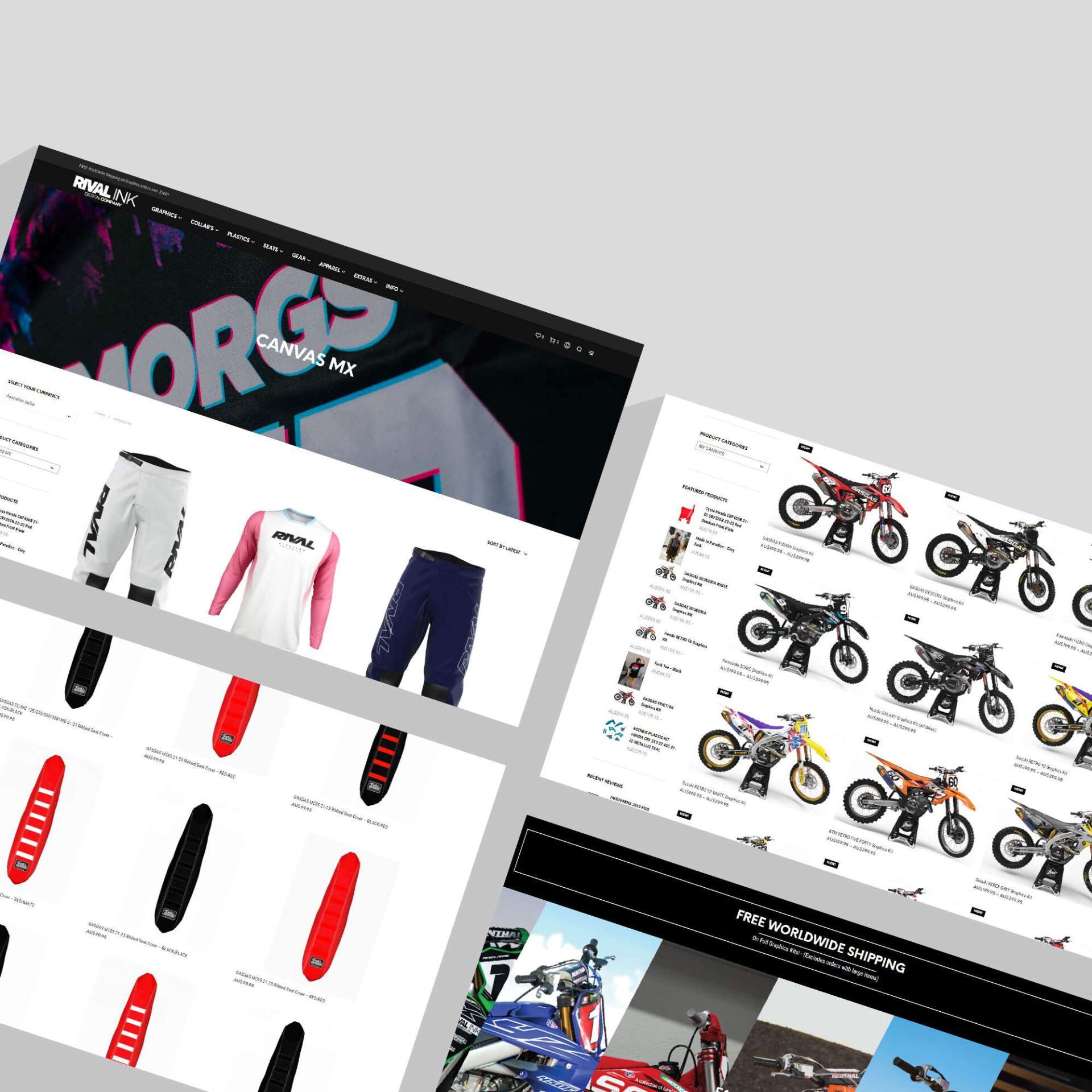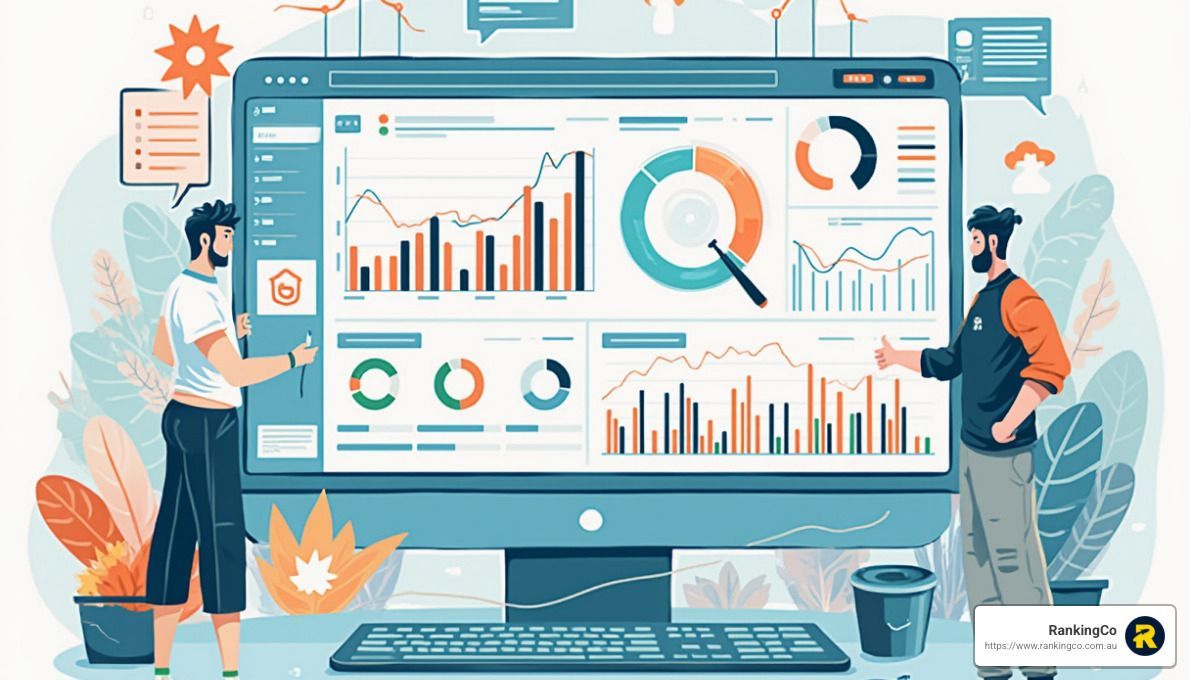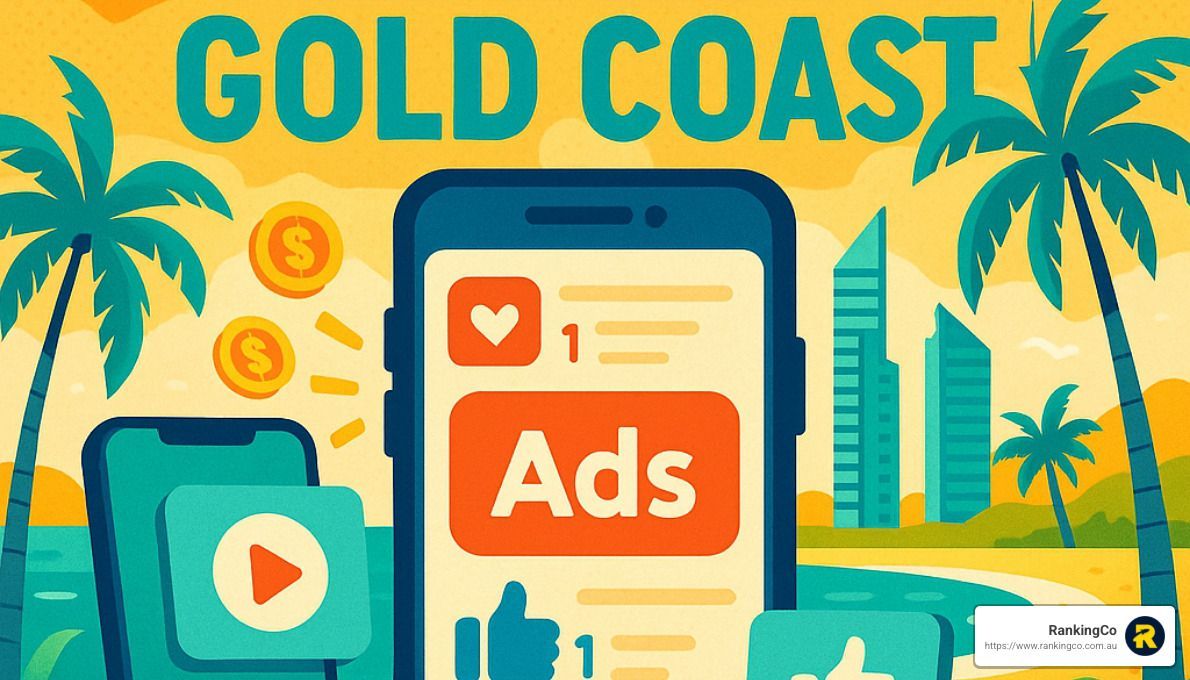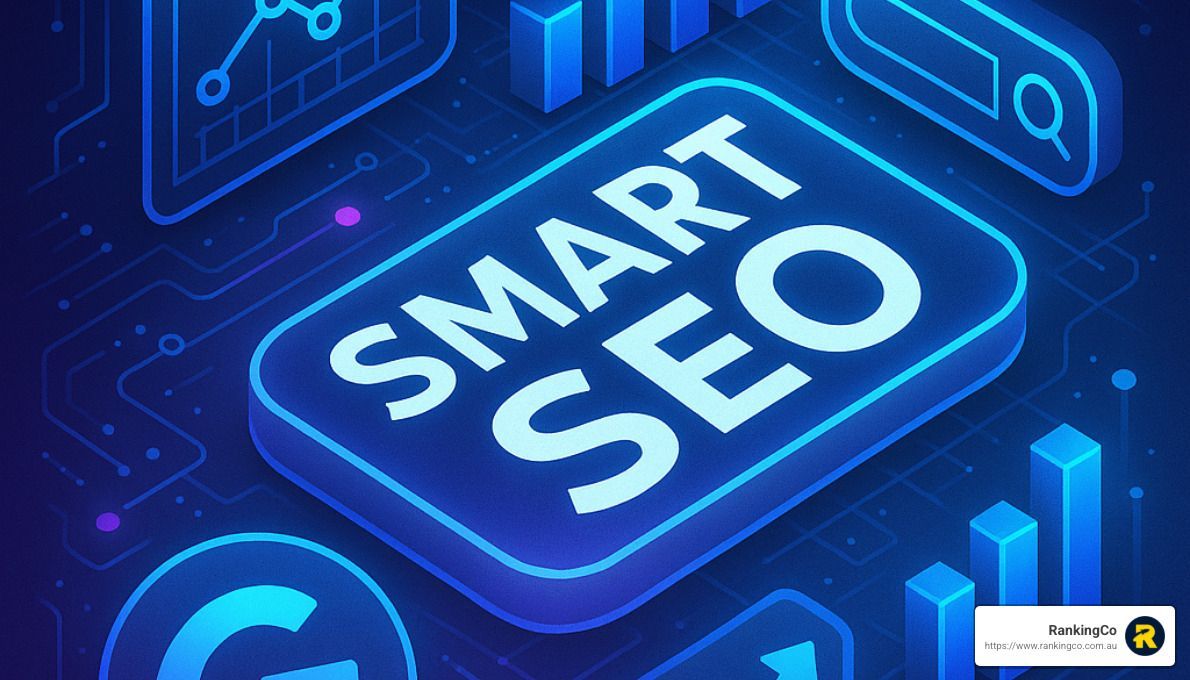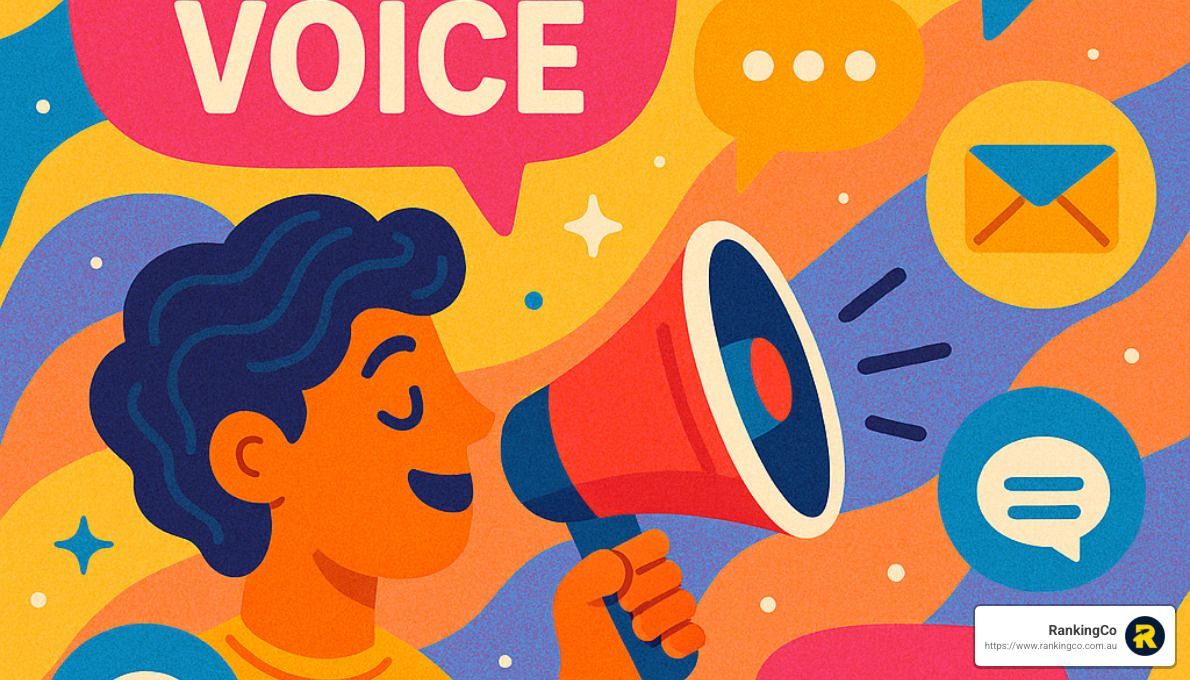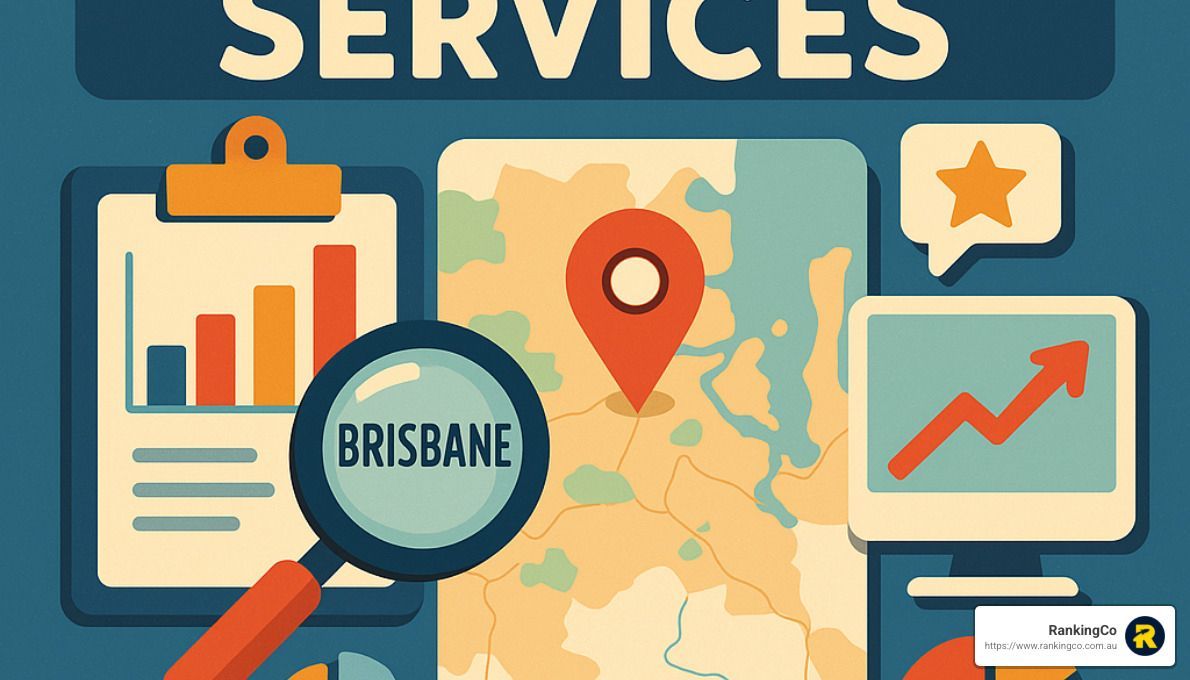Digital Marketing Services Unveiled: What Agencies Offer in 2024
In today's fast-moving digital landscape, understanding what a digital marketing agency services list includes can position your business for success. Here’s a quick rundown of key services these agencies typically offer:
- SEO (Search Engine Optimisation): Boost your website's visibility in search engines.
- Content Marketing: Engage audiences with valuable, relevant content.
- Social Media Marketing: Build a strong presence on platforms like Facebook and Instagram.
- Email Marketing: Create personalized messages that drive conversions.
- PPC (Pay-Per-Click) Advertising: Reach potential clients through targeted ad campaigns.
- Influencer Marketing: Collaborate with influencers to expand reach.
Getting these elements right can spell the difference between obscurity and a thriving online presence.
Digital marketing goes beyond just showcasing products; it's about creating meaningful connections with your audience. Effective strategies increase brand awareness, ensuring your business stands out in the crowded online space. Furthermore, these techniques are key to fostering ongoing customer engagement, turning potential leads into loyal customers who continually support and promote your brand.
I’m Kerry Anderson, co-founder of RankingCo, and I’ve been in the digital marketing game for over 15 years. My journey has taught me the importance of a comprehensive digital marketing agency services list to boost business growth and skyrocket online visibility. Transitioning now, we'll dive straight into exploring what each of these services entails and how they can uniquely benefit your business.
Comprehensive Digital Marketing Agency Services List
In the field of digital marketing, a well-rounded strategy is essential for building a robust online presence. Let's break down the digital marketing agency services list to see how each component plays a pivotal role in driving success.
Search Engine Optimisation (SEO)
SEO is the backbone of online visibility. It involves optimising your website so that search engines like Google rank it higher in search results. This isn't just about keywords; it's about creating a seamless user experience, ensuring your site loads quickly, and making it mobile-friendly.
- On-Page SEO: Focuses on optimising individual pages to rank higher.
- Off-Page SEO: Involves strategies like backlink building to improve site authority.
- Technical SEO: Ensures your website meets the technical requirements of search engines.
Search Engine Marketing (SEM)
While SEO is about organic growth, SEM takes a more direct approach. It involves paid advertising to increase your website's visibility. Platforms like Google Ads allow you to target specific audiences, ensuring your ads reach the right people at the right time.
Content Marketing
Content is king, and it's more than just blogging. It's about creating engaging, relevant content that resonates with your audience. This can include:
- Blogging: Sharing insights and expertise to attract and retain customers.
- Video Marketing: Captivating audiences with visual storytelling.
- Distribution Channels: Leveraging various platforms to ensure your content reaches far and wide.
Social Media Marketing
Social media platforms are where your brand's personality shines. It's about more than just posting updates; it's about engaging with your audience and building a community. Whether it's Facebook, Instagram, or emerging platforms, the goal is to create a consistent brand voice that resonates with your audience.
Email Marketing
Despite being one of the oldest forms of digital marketing, email remains incredibly effective. It's about sending personalised messages that nurture leads and convert them into customers. Key techniques include:
- Targeting: Reaching the right audience with the right message.
- Segmentation: Dividing your audience into groups for more custom communication.
- Lead Generation: Building a list of potential customers who are interested in your offerings.
Influencer Marketing
Influencers are the new celebrities, and collaborating with them can significantly expand your reach. By partnering with individuals who have a strong following, you can tap into new audiences and build credibility for your brand. It's about finding influencers who align with your brand values and can authentically promote your products or services.
Search Engine Optimisation (SEO)
Search Engine Optimisation, or SEO, is the art and science of getting your website noticed by search engines like Google. It's the backbone of digital marketing, ensuring your website appears at the top of search results. Let's explore the three core components that make up a successful SEO strategy.
On-Page SEO
On-page SEO is all about what happens on your website. This involves optimizing individual pages to make them more attractive to search engines and users alike. Key elements include:
- Content Quality: High-quality, relevant content is crucial. It should address the needs and queries of your audience.
- Meta Tags: These include title tags and meta descriptions that tell search engines what your page is about. They should be concise and include target keywords.
- Headings and Structure: Proper use of headings (H1, H2, etc.) improves readability and SEO impact.
- Internal Linking: Helps search engines understand the structure of your site and improves navigation for users.
By focusing on these areas, on-page SEO ensures your pages are ready to rank for relevant search queries.
Off-Page SEO
Off-page SEO refers to actions taken outside of your website to impact your rankings. It's about building authority and trustworthiness through:
- Backlinks: Acquiring links from reputable websites signals to search engines that your site is credible.
- Social Media Promotion: Sharing your content on social media platforms can drive traffic and generate backlinks.
- Influencer Outreach: Collaborating with influencers to share your content can improve visibility and authority.
These strategies help strengthen your website's reputation, making it more appealing to search engines.
Technical SEO
Technical SEO focuses on the backend of your website, ensuring it's structured for optimal performance. This includes:
- Site Speed: Fast-loading pages improve user experience and are favoured by search engines.
- Mobile-Friendliness: With mobile-first indexing, your site must be accessible and functional on mobile devices.
- XML Sitemaps and Schema Markup: These help search engines understand your site's structure and content.
- Crawlability: Ensuring search engine bots can easily crawl and index your site is essential for visibility.
Technical SEO lays the foundation for a smooth, efficient website that search engines can easily steer.
By integrating on-page, off-page, and technical SEO, businesses can create a comprehensive strategy that boosts their online presence. Up next, we'll explore Social Media Marketing and how it can amplify your brand's voice across various platforms.
Social Media Marketing
Social media marketing is all about reaching your audience where they spend most of their time online. It's more than just posting updates; it's about engaging with your audience and building a strong brand voice across different platforms.
Platforms
Each social media platform has its unique audience and style. It's crucial to understand where your target audience hangs out:
- Facebook: With billions of users, Facebook is ideal for reaching a broad audience. It's great for sharing updates, events, and engaging in community discussions.
- Instagram: Known for its visual appeal, Instagram is perfect for brands that can tell their story through images and short videos. It's particularly popular among younger audiences.
- LinkedIn: This platform is custom for professional networking. It's the go-to place for B2B marketing, sharing industry insights, and connecting with professionals.
- Twitter: Ideal for real-time updates and engaging in trending conversations. It's a platform where brands can show their personality and interact with followers.
- YouTube: As the second largest search engine, YouTube is powerful for video marketing. Brands can create tutorials, product reviews, and behind-the-scenes content.
Choosing the right platform depends on your audience and the type of content you have to share.
Engagement
Engagement is the heart of social media marketing. It's not just about broadcasting your message; it's about interacting with your audience:
- Responding to Comments: Engage with your followers by replying to their comments. This builds a community and shows that you value their input.
- Running Polls and Q&As: These interactive elements encourage participation and can provide valuable insights into your audience's preferences.
- Sharing User-Generated Content: Encourage your followers to share their experiences with your brand. This not only increases engagement but also builds trust.
- Live Videos and Stories: Platforms like Instagram and Facebook offer live video features that allow real-time interaction with your audience.
Engagement is about creating a two-way conversation that keeps your audience coming back for more.
Brand Voice
Your brand voice is how you communicate your brand's personality and values to your audience. It should be consistent across all platforms:
- Authenticity: Be genuine in your communication. Audiences connect more with brands that are authentic and transparent.
- Consistency: Whether you're posting on LinkedIn or Instagram, your brand voice should remain consistent. This helps in building a recognizable brand.
- Tone: Decide if your brand is formal, casual, humorous, or serious. Your tone should align with your brand's identity and the platform you're using.
- Messaging: Ensure your messaging is clear and aligns with your brand values. This helps in reinforcing your brand identity.
By maintaining a strong brand voice, you can create a memorable presence that resonates with your audience.
With a strategic approach to social media marketing, businesses can effectively engage their audience and amplify their brand's voice. Next, we'll dive into Content Marketing Strategies and explore how to create compelling content that drives results.
Content Marketing Strategies
Content marketing is the backbone of any digital marketing effort. It's all about creating and sharing valuable content to attract and retain a clearly defined audience. Let's explore some key elements of content marketing strategies: blogging, video marketing, and distribution channels.
Blogging
Blogging remains a powerful tool for engaging audiences and improving search engine rankings. A well-maintained blog can establish your brand as an authority in your industry. Here's why blogging is essential:
- SEO Benefits: Blogs help improve your site's SEO by incorporating relevant keywords and phrases. This makes it easier for potential customers to find you through search engines.
- Educational Content: Blogs are an excellent way to educate your audience. Share insights, tips, and tutorials that address their pain points and provide solutions.
- Regular Updates: Consistently updating your blog with fresh content keeps your audience engaged and encourages them to return for more.
- Community Building: Encourage comments and discussions on your blog posts to foster a sense of community. Responding to comments shows you value your readers' opinions.
Video Marketing
Video marketing is on the rise and for a good reason. It's engaging, shareable, and can convey complex information quickly. Here are some ways to leverage video marketing:
- Tutorials and How-To's: Create instructional videos that help your audience solve problems. These are highly valuable and often shared widely.
- Product Demos: Showcase your products in action. This helps potential customers understand the benefits and features more clearly.
- Behind-the-Scenes Content: Give your audience a peek behind the curtain. This builds transparency and trust with your brand.
- User-Generated Content: Encourage your customers to create and share videos of them using your products. This not only boosts engagement but also acts as authentic testimonials.
Distribution Channels
Creating great content is just the beginning. You need to get it in front of the right audience. Here are some effective distribution channels:
- Social Media: Share your content across platforms like Facebook, Instagram, and LinkedIn to reach a wider audience.
- Email Newsletters: Send your latest blog posts or videos directly to your subscribers. This keeps your brand top-of-mind and drives traffic back to your site.
- Collaborations: Partner with influencers or other brands to reach new audiences. This can amplify your content's reach and credibility.
- Paid Promotions: Use paid advertising to promote your content. Platforms like Facebook and Google Ads allow you to target specific demographics, increasing the chances of reaching your ideal audience.
By focusing on these content marketing strategies, you can create a consistent and engaging presence that drives results. Up next, we'll explore Pay-Per-Click (PPC) Advertising and how it can boost your digital marketing efforts.
Pay-Per-Click (PPC) Advertising
Pay-Per-Click (PPC) advertising is a powerful way to get your brand noticed quickly. Unlike organic methods, PPC allows you to pay for clicks to your website. This means you can get instant visibility and drive targeted traffic to your site. Let's explore some popular PPC platforms: Google Ads, Meta Ads, and Bing Ads.
Google Ads
Google Ads is a giant in the PPC world. It's the go-to platform for many businesses aiming to appear at the top of Google search results. Here's why it's so effective:
- Immediate Results: With Google Ads, your business can appear in search results almost instantly. This is crucial for time-sensitive promotions.
- Targeting Options: Google Ads offers robust targeting options. You can choose who sees your ads based on location, age, interests, and more.
- High ROI: Businesses, on average, earn $2 for every $1 spent on Google Ads. This makes it a cost-effective way to increase sales.
- Ad Extensions: Improve your ads with additional information like phone numbers, location, and links to specific pages on your site.
Meta Ads
Meta Ads, formerly known as Facebook Ads, allows you to tap into the vast user base of Facebook and Instagram. Here's what makes Meta Ads stand out:
- Visual Appeal: Meta Ads are highly visual, making them perfect for brands with eye-catching products or services.
- Audience Insights: Meta Ads provide detailed insights into user behavior and engagement, helping you refine your targeting.
- Custom Audiences: You can create custom audiences based on user interactions with your brand, making your ads more relevant.
- Engagement Opportunities: Meta Ads not only drive traffic but also encourage likes, shares, and comments, boosting your brand's visibility.
Bing Ads
Bing Ads might not have the reach of Google, but it offers unique advantages:
- Lower Competition: With fewer advertisers, Bing Ads often have lower costs per click, making it a budget-friendly option.
- Integration with Microsoft Products: Bing Ads integrate seamlessly with Microsoft products, providing unique opportunities for targeting professionals.
- Demographic Targeting: Bing users tend to be slightly older and more affluent, which can be beneficial for certain brands.
- Import from Google Ads: If you're already using Google Ads, you can easily import your campaigns into Bing Ads, saving time and effort.
By leveraging these PPC platforms, you can effectively reach your target audience and drive immediate results. Up next, we'll dive into Email Marketing Techniques and how they can bolster your marketing strategy.
Email Marketing Techniques
Email marketing remains a cornerstone of digital marketing strategies, offering a direct line to your audience. It's not just about sending emails; it's about delivering the right message to the right people at the right time. Let's break down some essential techniques: targeting, segmentation, and lead generation.
Targeting
Effective email marketing starts with precise targeting. This means understanding who your audience is and what they need. By targeting, you ensure your emails reach those most likely to engage with your content. This can be achieved through:
- Demographic Data: Use data like age, gender, and location to tailor your messages. For example, a local cafe might send promotions to nearby residents.
- Behavioural Insights: Track how users interact with your website and emails. If someone has recently browsed your products, a follow-up email with similar items can boost engagement.
- Purchase History: Previous buyers are more likely to buy again. Target them with exclusive offers or product recommendations.
Segmentation
Segmentation takes targeting a step further by dividing your email list into smaller groups. This allows for even more personalised communication. Here's why segmentation is key:
- Custom Content: Tailor your message to fit each segment. For instance, new subscribers might receive a welcome series, while loyal customers get sneak peeks of upcoming products.
- Improved Metrics: With segmented lists, you can track which groups respond best to different types of content, helping refine future strategies.
Lead Generation
Email marketing is a powerful tool for lead generation. It's about turning potential customers into loyal ones. Here’s how you can use email for lead generation:
- Opt-In Offers: Encourage website visitors to subscribe by offering something valuable, like a free eBook or exclusive discount.
- Landing Pages: Create dedicated landing pages that capture email addresses in exchange for content or offers. These pages should be simple and focused, with a clear call to action.
- Follow-Up Sequences: Once someone opts in, a well-planned email sequence can nurture them from interest to purchase. This might include educational content, testimonials, and limited-time offers.
By mastering these email marketing techniques, you can effectively build and maintain strong relationships with your audience. Up next, we'll explore Website Design & Development and how it impacts user experience and engagement.
Website Design & Development
Your website is more than just a digital business card—it's the hub of your online presence. A well-designed website can significantly impact user engagement and conversion rates. Let's explore the key aspects of website design and development that every business should focus on: user-friendly design, mobile optimisation, and UX/UI design.
User-Friendly Design
A user-friendly website is intuitive, easy to steer, and meets the needs of your visitors. Here's what makes a website user-friendly:
- Simple Navigation: Ensure your navigation menu is clear and straightforward. Users should find what they need within a few clicks. Consider using breadcrumbs to show users their path through your site.
- Fast Loading Times: Speed is crucial. A slow website can frustrate visitors and drive them away. Compress images and reduce unnecessary elements to improve load times.
- Clear Call-to-Action (CTA): Guide users toward desired actions with clear CTAs. Whether it's signing up for a newsletter or making a purchase, CTAs should be visible and compelling.
Mobile Optimisation
With more than half of all web traffic coming from mobile devices, having a mobile-friendly website is essential.
- Responsive Design: Your site should automatically adjust to fit different screen sizes. Test it on various devices to ensure a seamless experience.
- Touch-Friendly Elements: Make sure buttons and links are large enough to tap easily. Spacing out interactive elements can prevent accidental clicks.
- Mobile Speed Optimisation: Mobile users are even less patient with slow sites. Implement speed optimisation techniques specifically for mobile performance.
UX/UI Design
User Experience (UX) and User Interface (UI) design are critical for creating a website that not only looks good but also feels good to use.
- Visual Appeal: Use a cohesive color scheme, readable typography, and high-quality images to create an attractive design. A visually appealing site can evoke trust and encourage exploration.
- Intuitive Layout: Arrange content logically. Users should naturally flow from one section to the next. Use visual hierarchy to guide their attention to important elements.
- Accessibility: Ensure your site is accessible to all users, including those with disabilities. This includes using alt text for images and ensuring contrast ratios meet accessibility standards.
A well-executed website design and development strategy can transform your site into a powerful tool for engagement and conversion. Up next, we'll dig into Advanced Digital Marketing Strategies and how emerging technologies are shaping the future of marketing.
Advanced Digital Marketing Strategies
As we step into 2024, the digital marketing landscape is evolving rapidly, driven by AI technologies, shifting market trends, and a relentless focus on campaign effectiveness. Let's explore how these elements are reshaping the industry and what they mean for your business.
AI Technologies
Artificial Intelligence (AI) is revolutionising digital marketing by automating tasks and providing deeper insights into consumer behaviour. AI tools can analyse vast datasets to identify patterns, predict trends, and optimise marketing strategies in real-time. This allows businesses to create more personalised and engaging customer experiences.
For example, AI can help in crafting targeted content by analysing audience preferences and competitor strategies. Imagine a tool that suggests relevant keywords and even rewrites underperforming paragraphs for better readability. AI not only frees marketers from mundane tasks but also improves creativity by providing data-driven insights.
Market Trends
Understanding market trends is crucial for staying ahead in the competitive digital landscape. In 2024, we see a growing emphasis on personalisation and sustainability. Consumers expect brands to cater to their individual needs while also demonstrating a commitment to environmental and social responsibility.
AI analytics play a pivotal role here, offering insights into emerging trends and customer preferences. By leveraging these insights, businesses can craft campaigns that resonate with their audience, ensuring they remain relevant and impactful.
Campaign Effectiveness
Measuring campaign effectiveness is more sophisticated than ever, thanks to advanced analytics and AI technologies. Marketers can now track every aspect of a campaign, from initial engagement to final conversion, in real-time. This data-driven approach allows for continuous optimisation, ensuring maximum return on investment.
Predictive analytics, powered by AI, can forecast future performance and suggest adjustments to improve outcomes. This proactive approach helps businesses stay one step ahead, adapting campaigns to align with changing consumer behaviour and market conditions.
Incorporating these advanced digital marketing strategies into your business can significantly improve your marketing efforts. By embracing AI technologies, keeping an eye on market trends, and focusing on campaign effectiveness, you can ensure your brand remains competitive and relevant in the changing digital landscape.
Next, we'll tackle Frequently Asked Questions about Digital Marketing Agency Services, addressing key concerns and providing valuable insights for businesses looking to leverage digital marketing.
Frequently Asked Questions about Digital Marketing Agency Services
What are the key services offered by digital marketing agencies?
Digital marketing agencies provide a wide range of services designed to improve your online presence and engage your target audience. Here's a quick rundown of the most common offerings:
- Search Engine Optimisation (SEO): Improving your website's visibility on search engines to attract organic traffic.
- Search Engine Marketing (SEM): Paid strategies to increase your site's visibility on search engines.
- Content Marketing: Creating valuable content to attract and retain customers.
- Social Media Marketing: Managing social media platforms to build brand awareness and customer engagement.
- Email Marketing: Sending targeted messages to nurture leads and promote products.
- Pay-Per-Click (PPC) Advertising: Running ads on platforms like Google, Meta, and Bing to drive traffic.
- Website Design & Development: Building user-friendly, mobile-optimised websites.
- Influencer Marketing: Collaborating with influencers to reach a broader audience.
Each service plays a crucial role in building a robust online presence and driving business growth.
How do digital marketing services benefit small businesses?
Digital marketing services can be a game-changer for small businesses. Here’s how:
- Cost-Effective: Outsourcing digital marketing is often more affordable than maintaining an in-house team. Small businesses can save significantly on salaries, benefits, and tools.
- Expertise Access: Agencies bring a wealth of knowledge and specialised expertise. This allows small businesses to leverage advanced strategies without the steep learning curve.
- Scalability: Agencies offer flexible services that can scale with your business needs, allowing you to adjust your marketing efforts as you grow.
- Time-Saving: By handling all aspects of your digital marketing, agencies free up your time to focus on other critical areas of your business.
- Improved Reach and Engagement: Through targeted campaigns and strategic use of digital channels, agencies help small businesses reach a wider audience and engage customers effectively.
What is the cost range for digital marketing services?
The cost of digital marketing services varies widely based on several factors:
- Type of Service: Different services have different costs. For instance, SEO might have a different pricing model compared to PPC advertising.
- Scope of Work: The extent of services required will influence the cost. A comprehensive digital strategy will cost more than a single service.
- Agency Expertise: Agencies with a proven track record and high expertise may charge more for their services.
- Location: The geographic location of the agency can impact pricing due to varying cost-of-living considerations.
- Project Timeline: Urgent projects or those with tighter deadlines might incur additional costs.
Always discuss your goals and budget with potential agencies to get a transparent cost breakdown that aligns with your needs. This ensures you get the best value for your investment.
Next, we'll explore Conclusion, where we'll discuss how RankingCo can guide your digital change and strategic planning.
Work with Australia's Most Trusted Digital Marketing Agency
In today's digital world, businesses must adapt quickly to stay ahead. At RankingCo, we understand that digital change is not just an option—it's a necessity. Our Brisbane-based team specialises in creating custom digital marketing strategies that drive results.
Strategic Planning at Its Best
Digital marketing isn't just about running ads or posting on social media. It's about crafting a strategic plan that aligns with your business goals. At RankingCo, we use advanced AI technologies to analyse market trends and create campaigns that resonate with your target audience. This ensures that every marketing dollar is spent wisely, maximising your return on investment.
Embracing Digital Change
The digital landscape is changing, and businesses must be agile to keep up. Whether it's adapting to new platforms or leveraging emerging technologies, RankingCo is committed to guiding your business through digital change. Our expertise in local SEO, Google Ads, Meta Ads, and Bing Ads positions us as leaders in the field, helping small businesses increase their online visibility and reach.
Your Partner in Growth
Choosing the right digital marketing agency can be a game-changer for your business. With our comprehensive digital marketing agency services list, we provide everything you need to build a strong online presence. From SEO and content marketing to PPC and social media strategies, our services are designed to foster growth and engagement.
Ready to take your digital marketing to the next level? Let RankingCo be your trusted partner in navigating the complexities of digital change. Find more about our services and how we can help your business thrive in the digital age.
